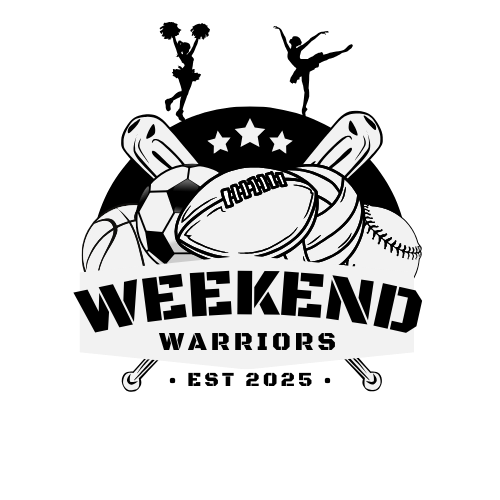Coaches Corner: Age-Appropriate Strategies to Boost Youth Development
Coaching kids isn’t just about teaching sport-specific skills—it’s about helping young athletes grow into confident, competent, and caring individuals. But to do that successfully, coaches need to understand one important truth: kids aren’t just small adults—they grow, learn, and think differently at each stage of development.
As a youth coach, have you ever wondered why your 6-year-olds can’t seem to sit still for more than two minutes, or why your teenagers suddenly care more about what their friends think than the actual game? It all comes down to developmental stages. Understanding these stages—and using strategies that match them—can make a big difference in building strong, positive experiences in youth sports.
Why Age-Appropriate Coaching Matters
We’ve all met that one-size-fits-all coach who runs the same practice for 8-year-olds and 15-year-olds. Sounds efficient, right? But here’s the problem: what works for a teenager probably won’t work for a young child. Athletes develop physically, emotionally, cognitively, and socially at different paces, and a mismatched coaching approach can lead to frustration, burnout, and disinterest in sports.
By tailoring your coaching strategies to match your athletes’ age and development, you’ll build stronger connections with your team—and make sports more fun and rewarding for everyone involved.
The Four Key Stages of Youth Development
1. Early Childhood (Ages 5–7): Fun First!
If you’ve ever coached kids this age, you know their energy is endless and their attention span… isn’t.
Typical characteristics:
- Short attention spans (think 5-10 minutes)
- Big imaginations
- Emerging coordination
- Still learning how to follow rules or routines
Coaching strategies:
- Play-based activities: Turn drills into games or stories. Pretend the cones are castles or the ball is lava—spark their imagination!
- Simple instructions: Keep it short and sweet. Think one instruction at a time (“Run to the cone” or “Kick the ball”).
- Positive reinforcement: Celebrate effort more than success. A high five or a quick “Nice try!” goes a long way.
Think of this stage like planting a seed. You’re not just growing athletes—you’re nurturing a lifelong love of movement and play.
2. Middle Childhood (Ages 8–10): Building Skills & Confidence
This age group starts to show a bit more focus and coordination. They’re curious, eager to learn, and they start caring (a lot!) about doing things “right.”
Typical characteristics:
- Better memory and focus
- Enjoy problem-solving and following rules
- Want to be liked by peers and coaches
- Just starting to build confidence
Coaching strategies:
- Teach fundamental skills: This is the golden age for learning motor skills like dribbling, passing, and catching.
- Create small goals: Set achievable challenges that build their confidence.
- Encourage teamwork: Support the idea of being part of a team. Group games and buddy drills work great here.
Imagine you’re building the foundation of a house—get it right now, and everything that follows will be stronger.
3. Early Adolescence (Ages 11–13): Self-Awareness in Overdrive
This stage brings a whole new dimension. Kids become more self-aware—and sometimes, more self-conscious. They may be unsure of themselves, seeking feedback and peer approval like never before.
Typical characteristics:
- A strong desire to fit in with peers
- Big leaps in physical ability, but also awkwardness due to growth spurts
- Start thinking more abstractly and critically
- Feel emotions more intensely
Coaching strategies:
- Focus on effort over outcomes: With so much pressure, your athletes need reassurance that trying hard matters more than winning.
- Offer choices: Let them have a say in practice—“Would you rather play this game or that one?” This gives them a sense of control.
- Foster a team-first culture: Group bonding activities can help smooth out social cliques and build unity.
Think of this stage like a cocoon—your athletes are transforming, slowly but surely. Your job is to provide safety, support, and guidance while they figure out who they are.
4. Adolescence (Ages 14–18): Driven and Developing
This is when things get more serious. Teens are more capable, more competitive, and—if coached well—more self-motivated. But they still need mentors who understand what they’re navigating both on and off the field.
Typical characteristics:
- Much stronger physically and mentally
- Seeking independence, but still crave recognition
- Can handle complex tactics and skills
- Still figuring out identity and purpose
Coaching strategies:
- Challenge them: Teens respond well to being pushed with purpose. Think creative drills, game-like scenarios, and tactical problem-solving.
- Respect their input: Let them lead warm-ups or offer feedback about practices or games. Show them their voice matters.
- Invest in the person: Don’t just focus on performance—ask how they’re doing. Support their interests outside of sports too.
This stage is like refining a diamond—there’s raw potential, but it takes patience, care, and pressure in the right areas to help teens shine.
Final Thoughts: Be the Coach They Always Remember
Great coaching isn’t about having the perfect game plan. It’s about meeting kids where they are—understanding their growth, guiding their development, and showing them they matter. When you coach according to their age and stage, everything improves:
- Skills develop smoother
- Team culture grows stronger
- Kids stay engaged and excited
The bottom line? Coach the kid first, athlete second. And if you’re ever unsure, ask yourself: “What does this child need from me today—not just as a player, but as a person?”
Because when you coach with heart and understanding, you’re not just shaping athletes—you’re shaping lives.
Need help getting started on the right foot?
For all first time or rookie coaches, grab your Voluntold Toolkit here!
